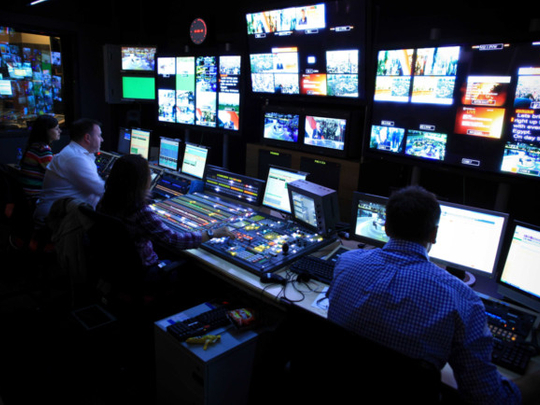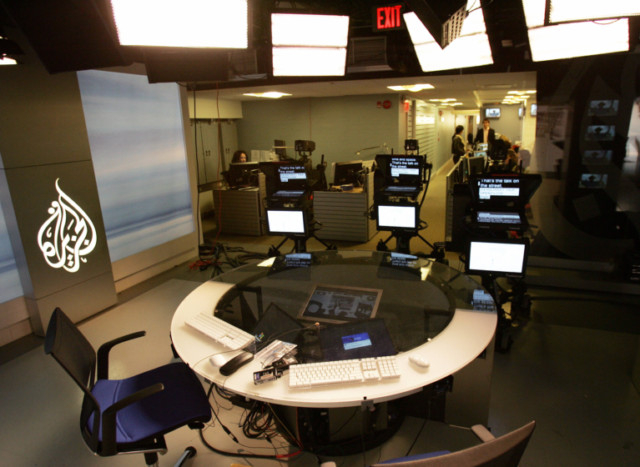
Manama: Khalid Al Jaber, an expert in international media, has never been lost for words to describe a terse situation or to provide a succinct analogy.
So when he was this month writing in the local daily Al Sharq about the status of Qatari journalists, he referred to “foot binding”, the archaic practice where women bound their feet to achieve a status symbol that allowed them to marry into money. However, for Khalid, the deputy editor-in-chief of the Doha-based Al Sharq, the practice merely conjured up images of twisted deformed feet, pain and frustration.
“In the past, we used the expression ‘Chinese foot binding’ when referring to the media in Qatar and unfortunately this reference still applies today,” he wrote. “This is an unhealthy situation because one foot in Qatar – the local press, radio and television – has been wearing the Chinese shoe whereas the foreign media – led by Al Jazeera- has remained free.”
The Doha-based pan-Arab channel beaming to millions of viewers has been credited with massively changing the media landscape in the Arab world and with ushering in more professional standards and challenging practices.
However, the glorious status has not been emulated by other Doha-based media. The awkward situation has resulted in schizophrenic feelings among journalists, and Khalid is frustrated by the inability of the local media to move forward.
“A hurting foot is painful and it does not allow you to walk easily, let alone run or take part in challenging competitions or win the marathon,” he wrote in a bitter style.
However, the Britain-educated media expert – he holds a BA in media from the University of Qatar and a PhD from Leicester -, attributed the stagnation of the local media landscape to the policies and approaches of the newspapers and the media.
“The media have not been able to exert a strong influence on the way we work or to sever the negatives ties to the past and replace them with a wonderful surge towards the future,” he wrote.
Referring to a forum organized recently by the Doha Centre for Media Freedom, he lamented that the focus was more on personal experiences than on the analysis of policies, practices, laws, legislations and strategies.
“I do not blame the centre, but rather the media system for the press and the audio-visual media as well as its weak impact. There is no modern law that stretches the freedom of the press or encourages the publication of new competitive newspapers or regulates media work. There is no code of ethics or a guide to assist journalists. There is no umbrella for journalists such as an association or a trade union.”
Khalid insisted that red lines had been drawn by people inside the media and that they have proliferated since the dismantlement of the information ministry around 15 years ago.
“What is really pitiful is that several opinion makers in Qatar are banned from entering Gulf or Arab countries or are deported and there is no interest or support from the media or any endorsement of their cases,” he wrote.
Rashid Al Fadhli, another Qatari journalist, echoed Khalid’s statements.
“Journalists have to be very close to their audiences and their worries and ambitions,” he wrote for Al Sharq. “Our leaders are well aware of this link and have lifted control off newspapers to encourage them to work freely, responsibly and honestly. However, to do this, newspapers have to free themselves from the shackles of imitation and repetition.”
Rashid said that Qatar’s local media has made strides, especially after the appointment of several local editors.
“However, we have not yet been able to achieve a really free press. Several publications may see their sale figures go down after editors avoided sensitive issues in society amid concerns about possible legal problems. The rule is that whenever there is a positive motivational environment, the media can deliver. It can perform its role in the coverage of local, regional and international events and issues efficiently and successfully,” he wrote.
He added that the lack of enthusiasm among Qataris to be part of the media landscape has hampered a brighter picture for the landscape.
“Many Qataris do not want to join the media because they do not want a profession that demands special skills, fortitude and resilience whereas they can have more attractive opportunities and privileges elsewhere.”
Rashid said that the fact that journalists started relying on information provided to them without checking the information and verifying the facts added to the woes of the industry.
“Another problem for example is local artists and events are deprived of their rightful space because the focus is on regional and international arts and light stories.”
Attempts to redress the situation have been defeated by the delay in forming an association for Qatari journalists or writers.
“The delay and the ensuing dispute about it have made several local people freeze their engagement in the media and even desert them in some cases.”
“The blatant inexistence of protection or defense and support in case they are needed have really pushed them out of the circle,” he wrote. “At the same time, I am shocked that the opportunities are given to foreigners who often ignore local traditions and sideline Qatari journalists in their celebrations of media occasions.”













